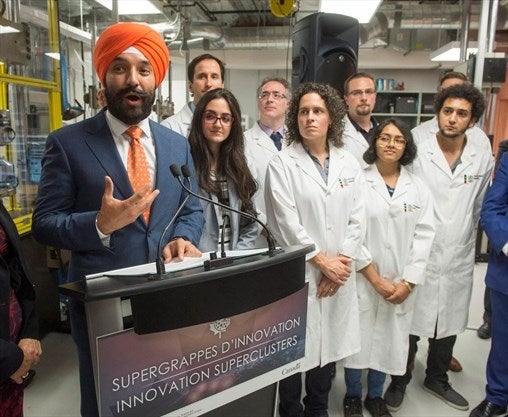
— The Advanced Manufacturing supercluster in the Toronto-Hamilton-Waterloo corridor will connect technology strengths to manufacturing industry to prepare for the economy of tomorrow. It involves the University of Waterloo, Guelph-based auto parts firm Linamar Corp., MaRS Discovery District and Maple Leaf Foods among other companies and organizations.
— The Ocean supercluster based in Atlantic Canada will use innovation to improve competitiveness in Canada's ocean-based industries, including fisheries, oil and gas and clean energy;
— The Scale AI supercluster in Quebec will work on building intelligent supply chains through artificial intelligence and robotics;
— The Protein Industries supercluster in the Prairies will work on making the country a leading source of plant proteins;
— The Digital Technology supercluster in British Columbia will use big data and digital technologies to unlock new potential in important sectors like health care, forestry, and manufacturing.
The supercluster concept is designed to bring together small, medium-sized and large companies, academic institutions and not-for-profit organizations to generate forward-looking, job-creating ideas and innovation.
"What is a supercluster? It is a made-in-Canada Silicon Valley that will create tens of thousands of jobs — that's what a supercluster is," Bains said Thursday as he unveiled the winners in Ottawa.
"It's about collaboration as well. Look at this room — we have academia, business, you have small business and large business, and we have government — working together, promoting collaboration, supporting our supply chains and also developing and nurturing skills and knowledge and making sure that we pass that knowledge from one generation to another.
"Superclusters — it's a job magnet."